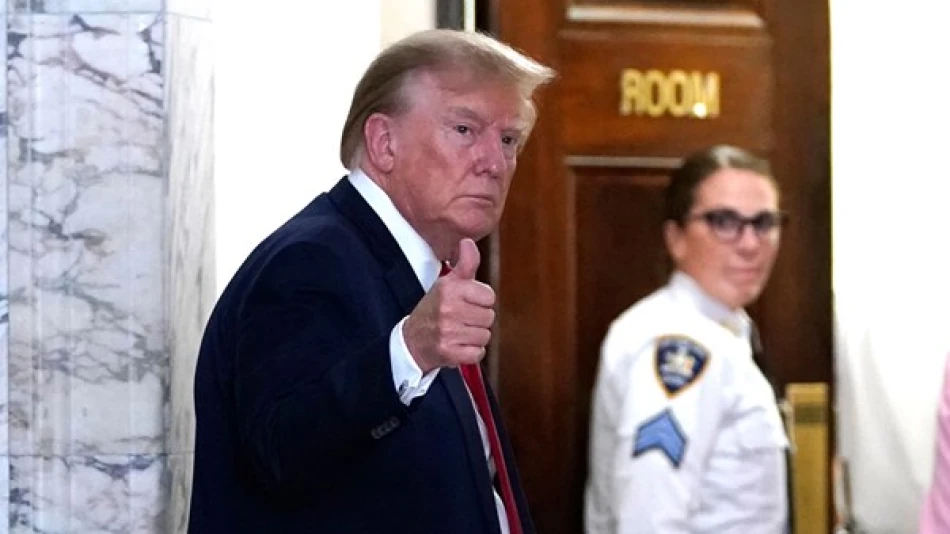
Trump Avoids $500 Million Fine in Court Ruling
Trump Wins Major Victory as New York Appeals Court Overturns $500 Million Civil Fraud Penalty
A New York appeals court delivered a stunning reversal Thursday, completely overturning the nearly half-billion-dollar civil fraud penalty imposed on Donald Trump for allegedly inflating his asset values to secure better business terms. The decision represents a significant legal victory for the former president and a major setback for New York Attorney General Letitia James, whose office had pursued one of the most financially damaging cases against Trump in recent years.
A Divided Court Delivers Unanimous Relief
The five-judge Manhattan appellate panel reached the same conclusion through different legal reasoning, highlighting the complexity and potential overreach of the original case. Two judges found that while Trump's liability was correctly established and James "defended a public interest" through her lawsuit, the penalty was unconstitutionally excessive. Two others determined that a new trial was necessary because the original judge shouldn't have held Trump liable for fraud without a full trial. The fifth judge went further, arguing the case should have been dismissed entirely.
This judicial split suggests the original case may have been built on shakier legal ground than initially apparent, potentially signaling broader challenges for similar high-profile financial fraud prosecutions.
The Original Case: Asset Inflation and Business Advantages
Judge Arthur Engoron had originally found that Trump systematically overstated his wealth for several years before becoming president in 2017, allegedly to secure more favorable terms for the Trump Organization. The February 2024 ruling ordered Trump to pay $454.2 million plus accumulating interest, creating immediate financial pressure on his business empire.
Trump consistently denied any wrongdoing throughout the proceedings, characterizing the case as politically motivated persecution.
Broader Implications for Business Prosecutions
This reversal carries significant implications beyond Trump's personal legal battles. The decision may embolden other business leaders facing similar asset valuation disputes with state prosecutors, while potentially constraining aggressive enforcement actions by state attorneys general.
The case had been closely watched by real estate professionals and financial institutions, many of whom engage in subjective asset valuations as standard business practice. The appeals court's decision suggests there are constitutional limits to how severely such practices can be penalized, even when they cross legal boundaries.
Political and Legal Momentum Shift
For Trump, this victory removes a substantial financial burden and eliminates a key talking point for political opponents who pointed to the massive penalty as evidence of business misconduct. The timing, coming as Trump navigates multiple legal challenges while remaining active in politics, provides significant relief and may influence public perception of other ongoing cases.
For Attorney General James, who built much of her prosecutorial reputation on pursuing Trump-related cases, the reversal represents a substantial professional setback and may influence how other state prosecutors approach similar high-profile financial investigations.
The decision underscores the ongoing tension between aggressive state-level prosecution of business practices and federal constitutional protections, a dynamic likely to shape white-collar enforcement strategies nationwide.
Most Viewed News

 Layla Al Mansoori
Layla Al Mansoori






